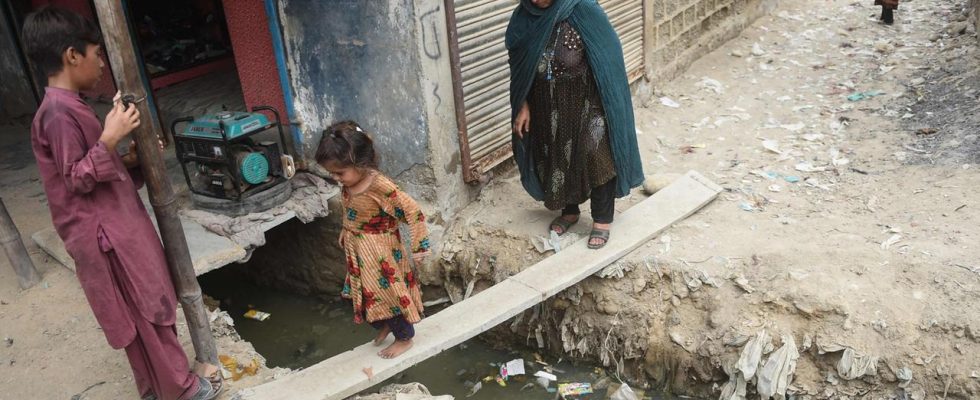Almost two million Afghans live as refugees in Pakistan – many of them for a long time. Anyone who does not have any documents should now be deported. Observers fear a humanitarian catastrophe.
Pakistan’s Acting Interior Minister Sarfraz Bugti is certain: Of the 24 suicide bombers who attacked Pakistan this year, 14 were Afghan nationals living in Pakistan. He then lists the most serious attacks – attacks attributed to the Taliban group TTP, which is active in Pakistan: in Peshawar in January, in Balochistan in May and again in July, and on the border with Afghanistan in September. Dozens dead. This is now over, says Bugti. All illegal immigrants would have to leave Pakistan. And it is clear who is meant: it is predominantly about Afghans.
Deadline by November 1st
“We are giving the illegal immigrants here, those who do not live legally in Pakistan, a deadline of November 1st. They should return to their home countries by then. Anyone who does not do this will be dealt with by the state, the provincial governments and the federal authorities , all law enforcement agencies will act – they will deport them,” explains Bugti.
A brutal message aimed at 1.7 million people without residency status. Many of the Afghan refugees have been in Pakistan for forty years, but some only came when the Taliban took power in Afghanistan a good two years ago. Another almost three million Afghans in the country at least have Pakistani documents and are not covered by the decree. Yet they have often lived as second-class citizens for decades.
“We don’t get any Citizenship”
This is your Pakistan, this is my Pakistan, they chant at Sufaid Dheri School in Peshawar, a boys-only primary school. There are almost 400 students here. Children of Pakistani parents, but also many children of Afghans.
Shoemaker Shamsuddin has two sons in school. He has been in Pakistan for 44 years and lives in peace with his Pakistani neighbors. “We actually have good relations with each other. But they still call us refugees. No matter what we do, no matter how long we live here, we don’t get citizenship here. That separates us. Otherwise it’s good and we’re happy, but always refugees,” said Shamsuddin.
No protection status for refugees in Pakistan
Pakistan has never signed the UN Refugee Convention. There is also no national legislation that would guarantee refugees residence status. The country has been issuing special ID cards for Afghans for at least 15 years. But not everyone has received it – and that’s why the announcement affects so many.
Qurban Nazar came from Afghanistan in the 1980s. He lives in the south of the country, in Karachi. “If we are forced to leave Pakistan, we will leave. But it is our right to stay in Pakistan, both according to Islam and democratic norms. Forty years is a very long time. There should be justice,” demands Nazar.
Shadow regime of the Pakistani Taliban
Many in the country consider Interior Minister Bugti’s blanket accusation that illegal Afghan refugees are to blame for Pakistan’s precarious security situation to be exaggerated and a pretext. Basically it’s about the Pakistani Taliban from the TTP. They have established a shadow regime in some areas of western Pakistan and are carrying out attacks across the country.
The Taliban ruling Afghanistan say they have no influence on the TTP. But the terrorists are using the border area to retreat into Afghan territory. Or the Afghan exile communities to hide – one reason why Afghans in Pakistan are now being targeted by the government.
The Interior Minister has not yet said how the forced expulsion of 1.7 million people back to Afghanistan will take place in practice. It can’t be organized at all, critics say, and above all: it would lead to a humanitarian catastrophe.

